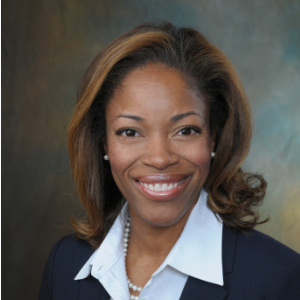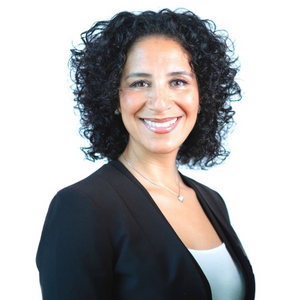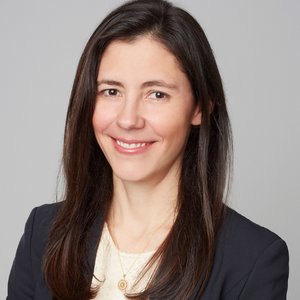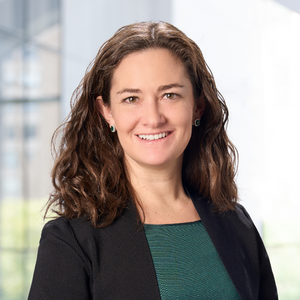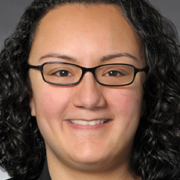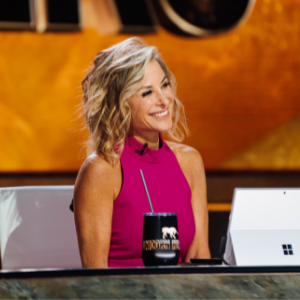Noelle Ramirez: Project Manager, Diversity, Equity & Inclusion, PGIM
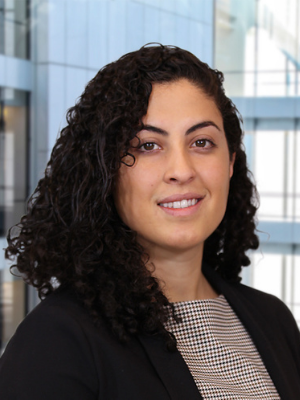 “I bring to the table my lived and learned experience as a woman, a lesbian woman, a Hispanic woman,” says Noelle Ramirez. “The things that kept me quiet in the room before are the things making me speak the loudest in the Diversity, Equity & Inclusion space.”
“I bring to the table my lived and learned experience as a woman, a lesbian woman, a Hispanic woman,” says Noelle Ramirez. “The things that kept me quiet in the room before are the things making me speak the loudest in the Diversity, Equity & Inclusion space.”
She speaks to showing up visibly to create belonging, how to expand the diversity of recruitment, and the prerequisite importance of culture.
Being The Representation You Want To See
Given her love for people and their stories, Ramirez chose to study immigration throughout her undergrad at Dartmouth. During recruiting season in college, she never saw herself, as a Puerto Rican woman, in asset management. Literally. The recruiters and classmates on that track did not look like her.
“I didn’t see myself, and the lack of representation was something that I shied away from,” she recalls. “But a lot of my perceptions were really misperceptions. I just did a talent research project at PGIM, where we found there’s a huge perception issue for the wealth and asset management industry felt by not only women, but also Latinx individuals, Hispanic individuals, black individuals: I don’t see myself, so how could I go that route?”
So when Ramirez moved to a focused diversity, equity and inclusion (DEI) role in asset management, she did so with intention.
“I can be the representation that I want to see and make an impact in an industry that needs more people like me,” she says. “Highlighting different voices is something I want to do—you don’t have to be a math major or male or straight in this industry. You can show up, do a good job and succeed. I found there’s some amazing, diverse people in this industry. They’re just not the voices we have traditionally highlighted first.”
Casting A Wider Net for Recruiting
“The most rewarding piece of my work is to create an opportunity and open a door, where traditionally that door may not have existed,” says Ramirez, “to be able to put that spotlight on someone who might not have been seen and say, ‘I see you and there’s space for you here.’”
In the Latinx talent space, Ramirez experienced one of her biggest moments of impact when she and a colleague dared to cast a wider net. They traveled to Hispanic-serving institutions in Florida, well outside of the typical target schools, and met Luisa Maria Machado Artimez, a first generation American who came to the US at the age of 12 from Cuba and served in the US Army for a year before starting college. Ramirez found Luisa to be “one of the most inspiring young women that I’ve ever worked with and probably will ever know.”
Ramirez and her colleague agreed they wanted to find a way to invite Luisa into the industry via an internship at PGIM. She joined the summer program, was a star performer and is returning next year.
“That’s why I do this work. It’s easy to make the case for casting a wider net when you know someone like Luisa has been brought into the organization and succeeded,” she says. That’s when the higher-level support comes and then you can create an entire strategy around that.”
Making the Business Case
“You’re not going to move mountains when it comes to DEI in a month, or even a year. We’re fighting things like systemic racism that have been in place for generations,” she says, “so it’s important to celebrate small wins.”
Ramirez emphasizes being strategic and data-driven in the DEI sphere.
“For some people, it really is showing them exactly what they are missing by not caring about this,” she notes, “creating that story and walking them to that finish line, so they can take the step to make the change in the organization.”
For example, one of her DEI focuses has been on identifying where core Latinx talent is concentrated in the organization, to establish allyship to support that talent in moving towards more leadership positions.
“The Latinx population is becoming the majority minority—this is, the fastest-growing population, a more educated and entrepreneurial population, set to become the majority homeowners in the next 20 years,” she observes. “If the industry doesn’t have a strategy that’s going to capitalize on this talent, we’re completely missing the boat from a business perspective.”
She notes the “three P” factors that are barriers to Latinx recruitment in the industry:
- Perception: This is not an industry that I see anyone like me in.
- Talent Pipeline: I don’t even know or understand what asset management is, so how would I choose it?
- Passion & Purpose: Can I feel good and passionate about wealth creation?
“If we don’t know the barriers to address,” says Ramirez, “then how are we going to work towards them as an industry?”
“Job hunters today are looking for a career that aligns with their values and that they can feel good about – and rightly so, we should feel passionate about purposeful in the work we do every day.”
Ramirez feels there needs to be more emphasis on getting different voices out there to attract a diverse talent pool as well as sharing stories about how companies are doing good and can align with your values, like PGIM’s huge investment in the community of Newark, New Jersey.
Put Culture First and Create an Inclusive Environment
When it comes to advice on making career-related decisions, she tells others: “Culture first. Seek out advice from people that are already there. What has their experience been? Do they feel comfortable? Do they feel like they can bring who they are to the table? If the answer is yes, that’s a good place to start. It takes away a lot of productivity and energy to not be who you are.”
“Go somewhere where you can be yourself. I’m very passionate in my delivery and it’s part of my culture. Making sure I’m in an environment where that doesn’t have to be shut off is important,” she says. “Look for environments that are ready to receive you, because that’s where you’ll be your most productive, innovative, creative and strategic.”
Another core component of Noelle’s team’s work is to create a safe space so that people can comfortably share as little or as much about their own experience as they wish.
“I’m a lesbian. I can talk about my partner every Monday morning. I would say as an industry, we are behind in creating safer spaces where people can be 100% themselves,” she notes. “We have an LGBTQ+ Think Tank at PGIM, which is comprised of Out leaders across the organization, which is thinking of ways to highlight LGBTQ+ voices and to give them a platform to share and educate.”
For me, I made the conscious decision to be out at work, especially when I joined the DEI space, because I felt like there weren’t many out people that I could go to and seek advice from, and I wanted to be that for someone else.”
Of her own intersectional identity, Ramirez notes, “I’m a white passing person and there’s privilege in that. Early on in my career, it was much easier to just blend. But moving into the DEI space, all of the things that made it uncomfortable now instead legitimize me and give me a platform to stand on.”
“How am I going to show up today from my voice?” Ramirez notes it’s a daily struggle. “From your voice to your hair to your clothes to your delivery, these are not necessarily things that are on everyone else’s mind.”
Ramirez is a huge athlete and since her father introduced her two years ago, she’s been obsessed with one the world’s fastest growing sports: pickleball—which combines elements of badminton, table tennis and tennis.
Played by people of all ages, not only has it allowed her to get outdoors daily during the pandemic, but she’s also made close friends with people she would have never otherwise met. Though her partner is more inclined to music than sports, she also often joins Ramirez on the court.
By: Aimee Hansen

